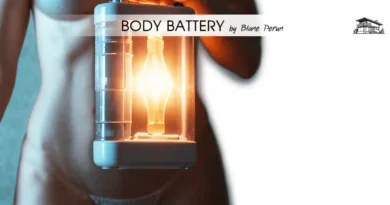Stressors Drain Body Battery
Unraveling the Mystery: How Stressors Deplete Our Vital Energy
In today’s fast-paced world, the term “Stressors Drain The Body Battery” is not just a metaphorical expression but a stark reality that many of us face. Just like a battery powers a device, our bodies are powered by a complex interplay of physical, emotional, and chemical energies. When stressors—ranging from work deadlines to personal conflicts—constantly bombard us, they act like apps running in the background, silently depleting our body’s energy reserves. This article delves into the intricacies of how stress affects us and offers insights into managing and mitigating its impacts to maintain our well-being.

Understanding the Impact of Stress
The Biological Response to Stress
When we encounter stressors, our bodies kick into high gear, activating the “fight or flight” response. This is governed by the sympathetic nervous system and involves the release of stress hormones like cortisol (hydrocortisone) and adrenaline (epinephrine). While this response is essential for short-term survival situations, its chronic activation can lead to a significant energy drain, affecting our health and well-being.
Stress and Its Toll on Mental Health
The psychological effects of stress cannot be understated. Chronic stress can lead to conditions such as anxiety and depression, which further exacerbate the body’s energy depletion. The hippocampus, a brain region critical for memory and emotion, is particularly vulnerable to prolonged stress exposure, impacting cognitive functions and emotional regulation.
Lifestyle and Stress Management
The Role of Diet in Counteracting Stress
What we eat plays a crucial role in how well our body can manage stress. A diet rich in antioxidants, omega-3 fatty acids, and other vital nutrients can bolster our body’s resilience against stress. Foods like blueberries, salmon, and leafy greens are not only nourishing but also help in reducing oxidative stress, a harmful byproduct of chronic stress.
Importance of Physical Activity
Exercise is a powerful antidote to stress. Engaging in regular physical activity helps to burn off the excess stress hormones and triggers the release of endorphins, the body’s natural painkillers and mood elevators. Whether it’s a brisk walk, yoga, or high-intensity interval training, finding a physical activity that you enjoy can be a key strategy in maintaining your energy levels and reducing stress.
Psychological Strategies for Stress Reduction
Mindfulness and Stress Relief
Mindfulness practices, including meditation and deep-breathing exercises, are effective tools for managing stress. By bringing your attention to the present moment and observing your thoughts and feelings without judgment, you can break the cycle of stress reactivity and conserve your body’s energy.
The Power of Positive Social Connections
Humans are social creatures, and our interactions can either be a source of stress or a powerful stress reliever. Cultivating positive relationships and connecting with others can provide emotional support and reduce feelings of isolation, contributing to a more resilient energy reserve.
In conclusion, the concept of “Stressors Drain The Body Battery” encapsulates the myriad ways in which stress can deplete our energy and affect our overall health. By understanding the biological and psychological impacts of stress and adopting strategies to manage and mitigate its effects, we can preserve our energy and enhance our quality of life.

FAQs
How do stressors specifically drain the body’s energy?
Stressors trigger the release of stress hormones like cortisol and adrenaline, which prepare the body for a “fight or flight” response. This response requires a lot of energy, and when it’s constantly activated by chronic stress, it leads to significant energy depletion, impacting our physical and mental health.
Can improving my diet really help counteract the effects of stress?
Yes, a nutrient-rich diet plays a vital role in bolstering the body’s defenses against stress. Foods high in antioxidants, omega-3 fatty acids, and other essential nutrients help in reducing oxidative stress and supporting overall brain and body health, thereby mitigating the energy drain caused by stress.
What kind of physical activity is most effective in combating stress?
Any form of physical activity that you enjoy and can consistently engage in is beneficial for stress relief. The key is to choose activities that suit your lifestyle and preferences, whether that’s yoga, walking, running, or strength training. Regular exercise helps in reducing the levels of stress hormones and increases the production of endorphins, improving mood and energy levels.
How does mindfulness help in conserving the body’s energy?
Mindfulness practices, such as meditation and deep-breathing exercises, help in breaking the cycle of chronic stress by focusing the mind on the present moment. This can prevent the overactivation of the stress response and promote a state of relaxation, conserving energy and enhancing resilience against future stressors.
Why are positive social connections important in managing stress?
Positive social connections offer emotional support and a sense of belonging, which can be incredibly stress-relieving. Engaging with supportive friends, family, or community members can help to diffuse stress, provide different perspectives on stressful situations, and reinforce a sense of connection, all of which contribute to maintaining a healthy energy balance.





